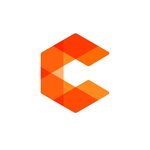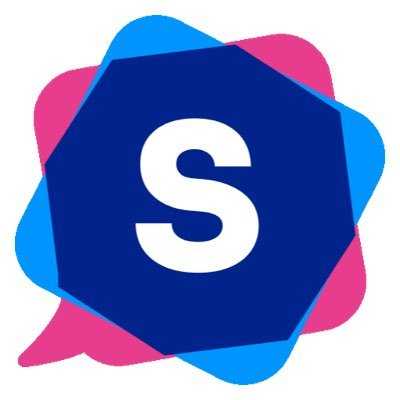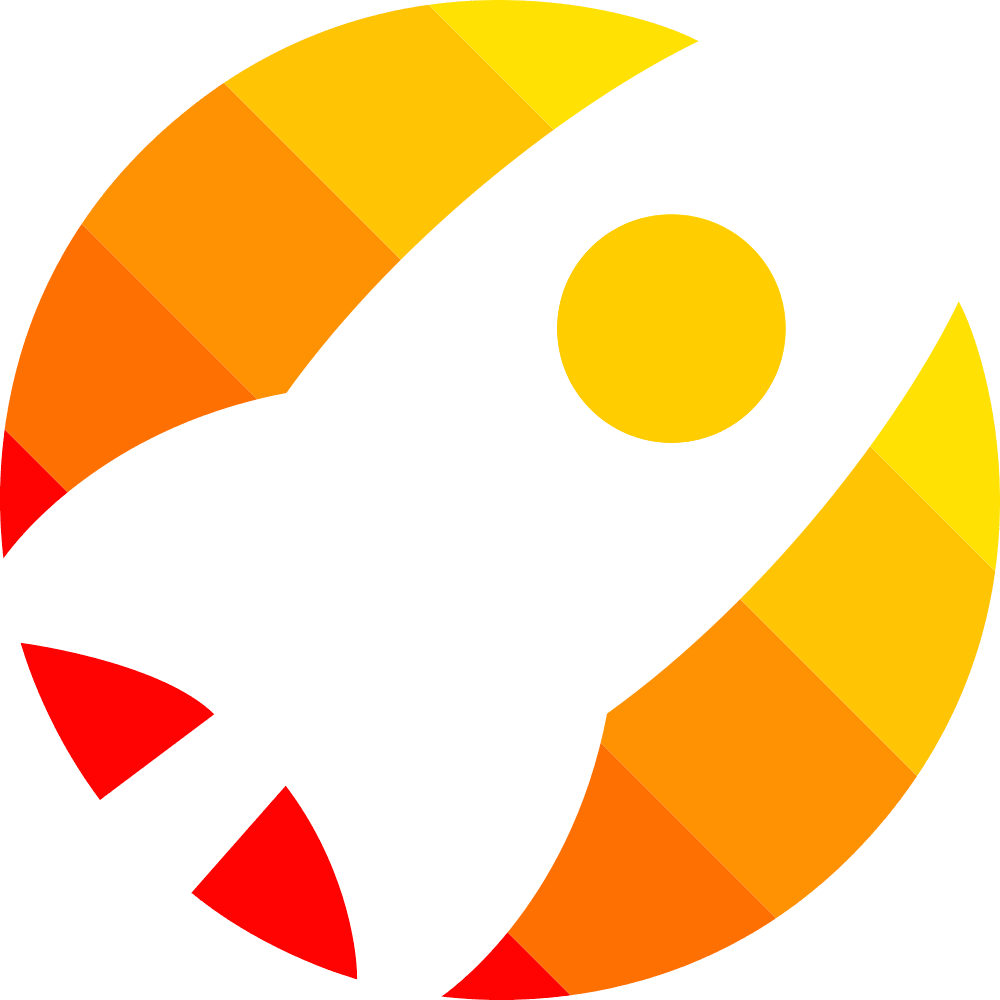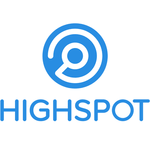Presales software is meant to give users flexibility and accessibility. It is accessible from several devices, including computers, tablets, and smartphones, and it is compatible with a variety of systems, including Windows, Mac, iOS, and Android. This enables sales teams to access the software at any time and from any location, making collaboration, lead tracking, and deal closing more efficient. Presales software's cross-device and cross-platform capabilities ensure smooth integration into the sales process.
List of 20 Best Presales Software
Hero by Vivun - an innovative platform designed to empower Sales Engineers by seamlessly connecting sales and product teams. By aligning priorities, streamlining demo automation, and driving substantial growth for rapidly expanding businesses, Hero b...Read More Hero by Vivun
ScreenSpace is a platform for transforming your buying experience. With dynamic storytelling techniques, ScreenSpace helps you engage, educate, and convert potential buyers like never before. Elevate your brand and stand out in the modern market with...Read More ScreenSpace
Snackwyze is a self-service demo automation platform built specifically for Presales teams. Our intuitive drag and drop editor lets you easily create engaging demos in minutes, providing a seamless experience for potential buyers. With features like...Read More Snackwyze
Demodesk is a meeting tool built for sales and success teams to streamline their virtual interactions. With its intelligent platform, you can effortlessly conduct software demos, sales pitches, onboarding sessions, and provide remote support. Elevate...Read More Demodesk
Meet MindTickle is a sales coaching software that equips your team with all the necessary tools for efficient learning. With seamless integration of training into your business, our platform ensures smooth onboarding and boosts productivity. Say good...Read More MindTickle
Consensus the demo automation platform that revolutionizes client engagement and streamlines sales procedures with personalized, interactive demonstrations. Renowned software companies trust and use Consensus to gain valuable insights and significant...Read More Consensus
DemoBlox is a demo platform that enhances your product presentations with personalized and lifelike data. With DemoBlox, you can equip your sales team with efficient and data-backed demo tools to effortlessly showcase the value and potential of your...Read More DemoBlox
Lancey is a product demo platform that elevates the sales journey for businesses. Through its dynamic capabilities, Lancey empowers businesses to create and present captivating demos that captivate website visitors and successfully convert them into...Read More Lancey
Walnut - the premier software for product demos, perfect for sales teams. This powerful tool allows businesses to craft dynamic and personalized demos that resonate with potential clients. With the support of leading companies, Walnut guarantees secu...Read More Walnut
Gondola is a project management software designed to streamline team coordination and boost productivity. Through its cutting-edge features such as real-time collaboration, advanced analytics, and customizable workflows, Gondola empowers businesses t...Read More Gondola
RevOwl is software designed to optimize your Go-To-Market strategy by connecting you with potential customers. With a global reputation for delivering excellent results, RevOwl offers a complimentary 30-day trial for businesses. Effortlessly embed in...Read More RevOwl
DocSend is the definitive solution for sales teams. Our user-friendly platform enables efficient management, sharing, and presentation of sales materials, with the added benefit of real-time document analytics. Utilize DocSend to enhance your sales p...Read More Docsend
Demostory is a browser built specifically for live demos. Created for sales engineers, Demostory allows you to effortlessly deliver engaging presentations and captivating narratives. With advanced features such as multi-session tab edits, save and la...Read More Demostory
Homerun Presales is a workspace for presales teams. This comprehensive software streamlines operations, enables efficient teamwork, and enhances productivity. With its advanced features such as tracking, collaboration, and analytics, Homerun Presales...Read More Homerun Presales
SmartCue solution for creating personalized product demo libraries for smooth and effective prospect presentations. With real-time visual and textual cues, tailored to your teams and prospects requirements, our platform makes closing deals effortless...Read More SmartCue
SmartReach the email and follow-up automation software that streamlines bulk emailing. Say goodbye to complicated cold email campaigns and hello to improved email deliverability. Our robust automation feature enables you to send personalized emails o...Read More SmartReach
Brainshark is the leading sales force automation solution that allows you to equip your sales team with the necessary resources for successful customer interactions. With Brainshark, your reps have everything they need at their fingertips for increas...Read More Brainshark
HighSpot is a top-performing software that helps businesses enhance their sales and marketing strategies through engaging content. With its advanced features, HighSpot simplifies the process of optimizing and distributing content via email and social...Read More Highspot
Transform your customer interactions with Chili Piper. As a customer success solution, it offers a variety of communication channels, such as phone calls and video conferencing, for seamless connectedness. Boost collaboration among departments with i...Read More Chili Piper
Seismic: the leading solution for Sales Force Automation. Our platform offers unmatched capabilities, spanning globally to empower marketing teams with powerful content tools. Elevate your sales and customer engagement with Seismic, delivering impact...Read More Seismic
Learn More About Presales Software
- What Is Presales Software?
- What Are The Recent Trends In Presales Software?
- Benefits Of Using Presales Software
- Important Factors To Consider While Purchasing Presales Software?
- What Are The Key Features To Look for in Presales Software?
- Why Do Businesses Need Presales Software?
- How Much Time Is Required To Implement Presales Software?
- What Is The Level Of Customization Available In Presales Software?
- Which Industries Can Benefit The Most From Presales Software?
- Conclusion
What Is Presales Software?
Presales software is a set of tools and technologies that help the sales process before a customer makes a purchase. This type of software is commonly used by sales teams, as well as marketing and customer care departments, to collect critical information, generate leads, and nurture new clients. One of the primary purposes of presales software is to streamline the lead qualification process.
This program uses a variety of data and analytics technologies to identify potential consumers who are most likely to become paying customers. This enables sales teams to concentrate their efforts on high-quality prospects while saving time and resources. Furthermore, presales software frequently includes client relationship management (CRM) features.
This enables sales teams to trace all interactions and conversations with customers throughout the sales process, resulting in a more personalized and seamless experience. Other presales software capabilities include sales automation, customer segmentation, and lead scoring. These technologies assist sales professionals in being organized and effective, while also providing vital insights into consumer behavior and preferences.
It's crucial to understand that presales software isn't a one-size-fits-all solution. Different businesses will have different goals and priorities, so it is critical to conduct extensive research and assess several possibilities to determine the greatest fit for your company. When selecting presales software, it is also critical to examine integration capabilities.
This software should be able to interface smoothly with your other sales and marketing tools, resulting in a streamlined and efficient process. Overall, presales software plays an important part in the sales process by assisting organizations in identifying and converting leads into clients. This software can improve efficiency, customer connections, and revenue by automating and improving specific tasks.
What Are The Recent Trends In Presales Software?
Presales software is continuously growing to satisfy the ever-changing needs of the current sales environment. With the advent of digital marketing and data-driven decision-making, organizations must use efficient and effective presales technologies to remain competitive.
Let's explore, we will look at recent trends in presales software to help you make informed decisions when it comes to selecting the best solution for your firm.
1. AI And Machine Learning (ML) Integration: AI and ML are creating waves in the presales software industry. These technologies are being utilized to automate tedious processes like lead scoring, data analysis, and client segmentation, freeing up sales personnel to focus on higher-value activities. As a result, presales software that incorporates AI and ML can greatly increase efficiency and productivity, resulting in faster and more accurate sales processes.
2. Personalization And Customization: In today's increasingly competitive industry, personalization is critical for developing strong customer relationships. Presales software incorporates advanced personalization and customization features to adjust sales pitches and offers to unique customer demands. This involves tailoring product demos, estimates, and pricing to individual customer preferences, resulting in a more personalized and engaging sales experience.
3. Omnichannel Capabilities: The development of omnichannel sales has created a new hurdle for presales teams: effectively managing several communication channels. As a result, presales software solutions are now connecting with other sales channels, such as email, chat, social media, and more, to provide clients with a seamless and consistent experience throughout their purchasing process.
4. Integration With CRM And Marketing Automation Solutions: Presales software is proven to be a significant addition to firms' technology stacks by connecting with popular CRM and marketing automation solutions. This connectivity guarantees a smooth flow of client data, which improves lead tracking, lead management, and customer interaction.
5. Predictive Analytics: Data is the foundation of successful sales processes, and presales software adds predictive analytics capabilities. By examining previous sales data and customer behavior patterns, presales software with predictive analytics can assist sales teams in identifying possible possibilities, anticipating client demands, and making data-driven decisions to win agreements.
Benefits Of Using Presales Software
Presales software is a specialist technology that helps sales teams close deals by streamlining the initial phases of the sales process. It offers a consolidated platform for handling leads, proposals, and interactions with prospective clients.
So, what are the advantages of employing presale software? Let's have a closer look.
1. Increases Efficiency And Productivity: One of the primary advantages of presales software is its potential to improve efficiency and productivity within a sales team. With all of the necessary features and tools in one place, representatives can quickly organize and track their responsibilities and actions. It eliminates the need to switch between tools or platforms, which saves time and effort.
2. Accelerates The Sales Cycle: In today's competitive market, organizations must respond quickly to secure transactions. Presales software assists in this area by automating and streamlining the initial steps of the sales process. Sales teams can respond to leads, produce personalized bids, and communicate with prospects much faster.
3. Accurate Lead Management: Presales software helps organizations manage leads more precisely and efficiently. It gathers and saves critical information about potential customers, including contact information, preferences, and communication history. Sales people that have extensive insights into their leads can personalize their approach and tailor their offerings to meet the client's demands.
4. Advanced Reporting And Analytics: Presales software has robust reporting and analytics tools that help firms obtain vital insights into their sales processes. It monitors and evaluates sales reps' performance, finds bottlenecks, and suggests areas for improvement. This data-driven approach enables firms to make better educated decisions, resulting in higher sales and revenue.
5. Improved Collaboration: One of the most major advantages of presales software is that it promotes collaboration and communication among a sales team. Real-time updates enable team members to stay connected, access the same information, and collaborate smoothly. It encourages transparency, fosters teamwork, and, ultimately, produces better results.
6. Customizable And Scalable: Presales software is highly adaptable and scalable, making it ideal for enterprises of all sizes. It is easily customizable to meet a company's specific requirements and adapts to the changing demands of a developing firm. As a result, it continues to be a useful asset for enterprises in the long term.
Important Factors To Consider While Purchasing Presales Software?
Presales software is an essential tool for firms looking to improve their sales processes and win over customers more efficiently. However, with so many options on the market, it might be difficult to select the best presales software for your firm.
Let's explore, we'll go over the most crucial elements to consider when selecting presales software so you can make an informed selection.
1. Understanding Your Needs: Before you begin studying and assessing various presales software options, you must first understand your individual requirements. This will allow you to narrow down your alternatives and select software that corresponds with your company's aims and objectives. When determining your requirements, keep your organization's size, the type of your products or services, and your sales team's needs in mind.
2. Features And Functionality: Presales software includes a variety of features and functions that can help your company's sales process. Some of the most important elements to look for include lead management, customer relationship management (CRM), proposal production, and reporting and analytics. Make a list of the features that are critical to your business and then evaluate each software based on functionality.
3. User-Friendliness: The simplicity of use of presales software is a crucial consideration, especially if you have a diversified sales team with varying degrees of technical knowledge. A user-friendly layout and straightforward navigation can save time and effort, allowing your staff to focus on their primary sales responsibilities. It is usually recommended to download a sample or trial version of the software before making a purchase to verify its use.
4. Scalability: As firms expand, their sales processes change, necessitating new features and capabilities from their presales software. As a result, it is critical to select software that is scalable and can support your company's future expansion. Consider the cost and time required to upgrade the software, as well as its compatibility with your existing systems and processes.
5. Integration: Presales software should work easily with your existing business systems, such as CRM, marketing automation, and project management tools. This connection increases the efficiency of your sales process by eliminating the need for manual data entry and duplicate entries. Before deciding on a program, be sure it has the integrations you need for your organization.
6. Customization: Each organization has its own sales procedures, and one-size-fits-all presales software may not meet your individual requirements. Look for software that allows you to add fields, create custom reports, and personalize templates. This ensures that the software adapts to your business, not the other way around.
7. Help And Training: Adopting new software can be difficult, and sufficient help and training are required to make a smooth transition. Look for a software vendor who offers training and assistance to help your staff learn and use the software's features efficiently. Consider their customer service and response speed while comparing vendors.
What Are The Key Features To Look for in Presales Software?
When it comes to selecting the best Presales Software for your business, there are numerous crucial features to consider.
As a professional content writer with knowledge in this field, I've described the key elements to consider before making a purchase.
1. Centralized Database Management: An effective Presales Software should include a centralized database management system that facilitates the storing and retrieval of critical client information. This functionality saves time and effort by removing the need to transition between different platforms.
2. Lead Management: A high-quality presales software should include a powerful lead management function that allows you to track, nurture, and convert potential leads into clients. This comprises work automation, lead scoring, and customer segmentation, among other things.
3. Customizable Templates: Look for Presales Software that provides bespoke templates for proposals, bids, and presentations. This helps you to personalize and tailor your communication to potential customers, increasing its effectiveness and impact.
4. Coordination Tools: Presales operations frequently include coordination among multiple teams and departments. That is why it is critical to seek for software that includes collaboration capabilities like task assignments, real-time messaging, and document sharing to ensure seamless and efficient teamwork.
5. Analytics And Reporting: A solid Presales Software should give you data-driven insights into customer behavior and sales results. Look for software with complete analytics and reporting capabilities to help you make informed decisions and improve your sales methods.
6. Integration Capabilities: In today's digital world, it is critical to select Presales Software that is compatible with different products and platforms utilized in your company. CRM systems, project management tools, and marketing automation software are a few examples.
7. Mobile Compatibility: As sales teams become increasingly mobile, it is critical to select Presales Software that works with mobile devices. This allows sales representatives to access critical information and collaborate with colleagues even while on the fly.
8. User-Friendly Interface: No matter how many features a software has, it will be ineffective if the interface is complex and difficult to use. Look for Presales Software with an intuitive UI that requires less training.
9. Customer Support: Finally, assess the level of customer support provided by the software vendor. Choose a company that has a strong customer support system in place, including online tutorials, training, and quick assistance in the event of an issue.
Why Do Businesses Need Presales Software?
Presales software is a vital tool for organizations who want to optimize their sales processes and increase profits. This program is intended to help firms manage their sales pipelines and increase the efficiency and efficacy of their presales efforts. One of the primary reasons that firms use presales software is to improve their lead generating and management processes.
Businesses must have a strong lead generation process in place to attract and engage potential clients as the market becomes more competitive. Presales software includes capabilities like lead scoring, lead monitoring, and lead nurturing, which help firms find and prioritize high-quality prospects before converting them into customers. Furthermore, the adoption of presales software can greatly minimize the time and effort required to qualify prospects.
Presales software, with capabilities such as automated lead qualifying and lead scoring, can assist firms in quickly identifying the most qualified leads and efficiently moving them through the sales pipeline. Furthermore, presales software enables firms to better their communication and engagement with potential clients. It includes email templates, call scripts, and automated follow-ups, which allow firms to engage with prospects in a timely and consistent manner.
This not only helps to establish a solid relationship with potential clients, but it also raises the likelihood of converting them into paying customers. Not only that, but presales software provides significant insights and statistics, allowing firms to make data-driven decisions. It delivers real-time data on sales activity, lead engagements, and customer behavior, allowing firms to track progress and adapt their sales approach as needed.
How Much Time Is Required To Implement Presales Software?
The time required to implement presales software varies based on a number of criteria. However, it typically takes 3 to 6 months for a corporation to fully integrate presales software. This timeframe encompasses the software's initial setup, training, and launch. The size and complexity of your organization, the level of customization required, and the availability of resources are all important considerations when determining implementation time.
Smaller enterprises with simpler processes may be able to adopt the software more quickly, but larger companies with more complicated processes may require a longer implementation time. The first stage in adopting presales software is often the initial setup, which involves configuring the software to match your organization's specific needs. This may include integrating the software with existing systems, configuring user permissions, and modifying procedures.
The time necessary for this stage varies, but it is critical to ensure that the software is customized to your specific needs. Next, your team will need to be instructed on how to utilize the software properly. This training can take anything from a few days to a few weeks, depending on how sophisticated the software is and how many users will be using it.
It is critical to provide extensive training to your team so that they can effectively use all of the software's features. You can start using the program once it has been installed and taught for your staff. Thorough testing is required to discover and resolve any flaws prior to the actual launch. This may take a few weeks, but it is a necessary step to guarantee that the program runs well and meets your expectations.
The implementation time for presales software might range from 3 to 6 months. To achieve successful implementation, a well-defined plan and enough resources must be in place. With good design and execution, presales software can significantly improve your sales processes and overall business performance.
What Is The Level Of Customization Available In Presales Software?
When it comes to presales software, personalization is an important factor to consider for firms trying to optimize their sales processes. The level of customisation available in presales software relates to how easily the software can be adjusted to meet the needs and operations of a certain firm. Most presales software on the market provides a high level of flexibility, allowing firms to tailor the software to their specific needs.
This includes the ability to personalize the user interface, add custom fields and templates, and link with other tools and systems. Some presales software may also provide advanced customization options, such as the ability to establish automated workflows, configure custom reports and dashboards, and even develop unique features via coding.
Buyers must carefully analyze the level of customization available in different presales software alternatives to ensure that it meets their individual business requirements. This can help firms optimize their sales processes and increase productivity by eliminating unneeded stages or features. Furthermore, customisation in presales software can improve the entire user experience, resulting in higher adoption and productivity among sales teams.
However, it is important to note that increased personalization increases complexity and may result in a longer implementation process. Before investing in highly configurable presales software, organizations must first examine their resources and skills.
Which Industries Can Benefit The Most From Presales Software?
Presales software is an essential tool for optimizing the sales process and increasing income for firms. While it can assist a wide range of sectors, particular ones stand to benefit the most from deploying presales software.
The following industries can benefit the most from presales software:
1. Information Technology: Given the rapidly changing nature of the IT industry, staying ahead of the competition is critical to success. Presales software enables IT organizations to present the characteristics and benefits of their goods and services to potential customers in a more structured and effective manner. It also promotes coordination among sales, marketing, and product teams, ensuring a consistent approach to presales efforts.
2. Healthcare: The healthcare industry is well-known for its complex sales processes with various stakeholders and stringent regulatory standards. Presales software can make this process easier by offering a single platform for managing and tracking leads, automating follow-up tasks, and assuring compliance with regulations. This not only increases the sales team's efficiency, but also aids in the development of long-term client connections.
3. Manufacturing: In the manufacturing industry, presales software is crucial for managing complex product configurations and price structures. It enables sales representatives to swiftly develop precise quotations and proposals, lowering the likelihood of errors and delays. Furthermore, the program is compatible with existing enterprise resource planning (ERP) systems, offering a comprehensive picture of inventory and production capacities to increase order accuracy and fulfillment.
4. Financial Services: Presales software is a very useful tool for financial services firms, particularly those working with complex and high-value items. By automating processes and optimizing workflows, presales software enables sales teams to focus on developing customer connections and providing personalized solutions. It also allows for real-time collaboration among teams, resulting in a consistent and effective sales process.
5. Professional Services: Client connections and opportunities must be managed and tracked by professional services firms such as consulting and legal firms to ensure success. Presales software offers a consolidated platform for managing connections and automating follow-up duties. It also enables businesses to monitor the success of their presales efforts and make data-driven decisions to improve their sales strategy.
Conclusion
After thoroughly investigating the numerous components of presales software, it is clear that this tool is critical to optimizing the sales process and enhancing productivity. Presales software, with its many features and functionalities, provides several benefits to organizations of all kinds. First and foremost, the ability to efficiently track and handle leads can considerably enhance conversion rates, resulting in increased sales.
Furthermore, automating manual chores like lead scoring and nurturing frees up sales people' time to focus on developing connections with prospects and closing agreements. Another critical feature of presales software is the ability to deliver real-time insights and data to sales teams. This not only improves decision-making, but also enables businesses to detect and capitalize on industry trends and opportunities.
Furthermore, presales software's collaboration and communication tools ensure that all sales team members are on the same page and can work effortlessly together. This not only results in a more unified and effective sales process, but also enhances the whole customer experience. In conclusion, presales software is essential for organizations seeking to stay ahead in today's competitive industry.
Its vast features and capabilities make it an essential tool for sales teams seeking success and growth. Businesses that invest in the appropriate presales software can efficiently streamline their sales process, improve client happiness, and ultimately increase revenue.
Presales Software FAQ's
Can Presales Software Be Accessed Across Multiple Devices And Platforms?
Is Presales Software Future-Proof And Adaptable To Emerging Technologies Like AI, Blockchain Or IoT?
Presales software is continually evolving and adjusting to suit the demands of emerging technology. Many presales systems currently integrate with AI, blockchain, and IoT platforms and are constantly updated to remain ahead of developing technologies.
Furthermore, these software solutions are designed with simple customization and scalability in mind, making them very adaptable to future advancements. Businesses can use presales software to stay ahead of the curve and capitalize on upcoming innovations.
Is There A Free Trial Offered To Assess Presales Software Before Committing?
Yes, many presales software suppliers provide a free trial period in which users can evaluate the software's operation and features before committing to a purchase. This enables potential clients to gain hands-on experience and learn how the software may help their organization. It is recommended that you use free trials to confirm that the program matches your needs and expectations before committing.
Does Presales Software Offer Data Security Features And Meet Regulatory Compliance Standards?
Yes, most presales software includes data security features such as encryption, user permissions, and data backups to safeguard the safety and confidentiality of your information. Furthermore, many software companies prioritize following legal compliance standards, such as GDPR and HIPAA, to safeguard sensitive client data. It is critical to investigate and select presales software that is compatible with your organization's data security and compliance needs.
Can Presales Software Integrate Seamlessly With Existing Tools And Platforms?
Yes, presales software can work perfectly alongside existing tools and platforms. This can be accomplished using APIs and other integration mechanisms that enable a smooth flow of data between systems. This connection not only saves time, but also increases efficiency and accuracy in the presales process. Presales software's flexible and customized connectivity options allow it to simply link with corporate tools and platforms, making it a valuable and handy addition to any sales stack.






